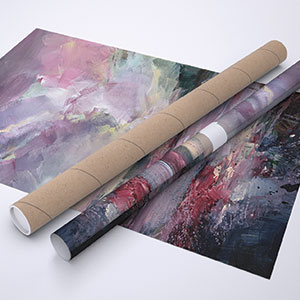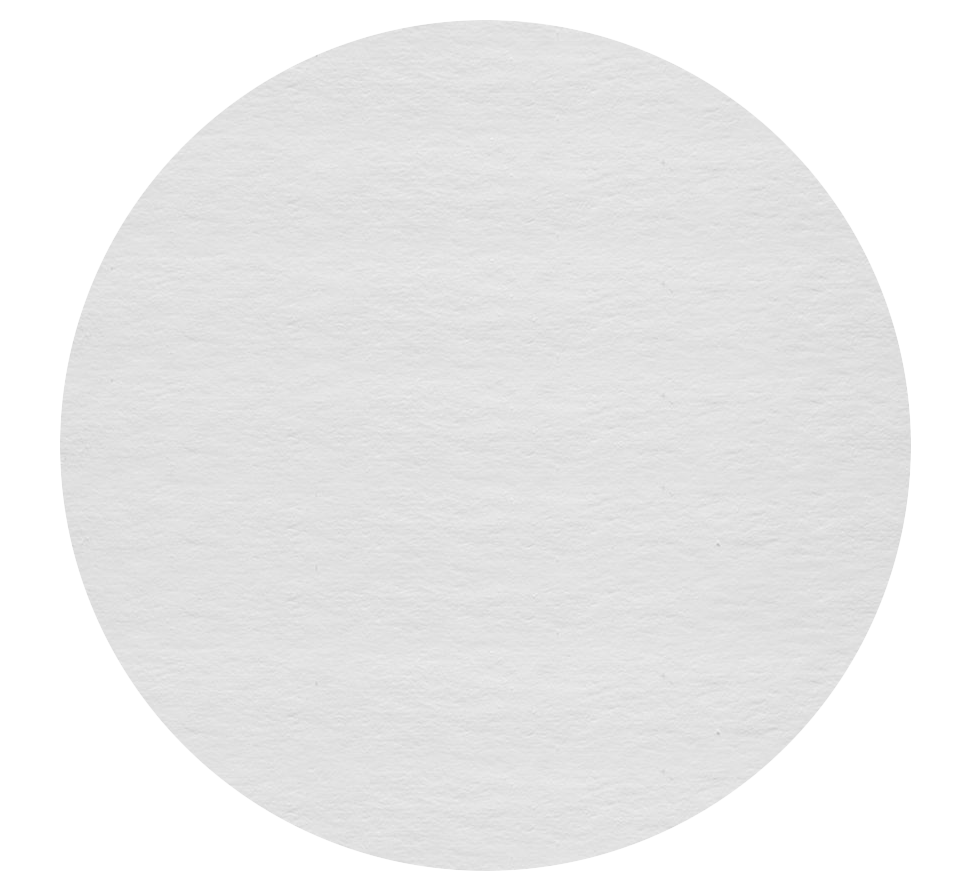










old Antique photo gay vintage fashion pride photos queer art (2024) Digitale Kunst door Raphael Perez
"Fine-Arts" afdrukken op papier
Het is een proces van afdrukken op kunstpapier met pigmentinkt van zeer hoge kwaliteit en gedrukt in zeer hoge definitie. Het niveau van conservering is uitzonderlijk (meer dan 100 jaar), de kwaliteit, diepte en rijkdom van nuances overtreft de klassieke fotoprint op Argentijns papier.

Glanzend afgewerkt
Afgezien van zijn uitzonderlijke dikte, bestaat het vezelpapier uit een alfa-cellulosebasis zonder zuur en is het bedekt met bariumsulfaat en een microporeuze laagabsorptie versterkende pigmenten tijdens het afdrukken. Dit papier heeft een puur witte kleur, vergeelt niet naar licht en is speciaal ontworpen voor weerstand en veroudering. Het wordt gebruikt door grote musea over de hele wereld omdat het een uitstekende resolutie biedt, waardoor diepe en dichte kleuren worden weergegeven.
Kunstdruk "Fine Art" - Glanzende afwerking op vezelbasispapier 325 g.

Onze hoge kwaliteit prints en reproducties
ArtMajeur gebruikt alleen natuurlijk papier met een neutrale pH, resistent en van hoge kwaliteit, geselecteerd uit gerenommeerde papierfabrikanten!
Onze hoofdprinter besteedt voortdurend aandacht aan kleurcontrole of respect voor de grafische keten. Onze hoge kwaliteitseis is een belangrijke troef van ingelijste kunstafdrukken van ArtMajeur.
Voor Kunstenaars! U helpt kunstenaars om te leven van hun werk. Elke keer als u hun werkt koopt, krijgen zij hun royalty's uitbetaald.
Over onze printsKoop een licentie om deze afbeelding te gebruiken voor uw website, uw communicatie of om afgeleide producten te verkopen.
Usage: Weblicentie
| 1483 px | ||

|
1500 px |
| Afmetingen van het bestand (px) | 1483x1500 |
| Gebruik wereldwijd | Ja |
| Gebruik op multi-support | Ja |
| Gebruik op elk type media | Ja |
| Recht van doorverkoop | Nee |
| Maximaal aantal prints | 0 (Zero) |
| Producten bestemd voor verkoop | Nee |
Direct na aankoop downloaden
Deze afbeelding is beschikbaar als download met licentie: je kunt ze op elk moment downloaden.
Beperkingen
Alle afbeeldingen op ArtMajeur zijn originele kunstwerken gemaakt door artiesten, alle rechten zijn strikt voorbehouden. Het verkrijgen van een vergunning geeft het recht om de afbeelding te gebruiken of te exploiteren onder de voorwaarden van de licentie. Het is mogelijk om kleine wijzigingen aan te brengen, zoals reframing, of de afbeelding opnieuw oriënteren, zodat het perfect past bij een project. Het is echter verboden om wijzigingen aan te brengen die het oorspronkelijke werk zouden kunnen schaden in zijn integriteit (aanpassen van vormen, vervormen, snijden, veranderen van kleuren, toevoegen van elementen enz. ...), tenzij een voorafgaande toestemming van de kunstenaar is verkregen.
Aangepaste licenties
Als uw gebruik niet onder onze standaard licenties valt, neem dan contact met ons op voor een aangepaste licentie.
Kunstafbeelding database-
Dit werk is een "Open Edition"
Digitale Kunst,
Giclée / Digitale afdruk
- Dimensies Verschillende maten beschikbaar
- Verschillende ondersteuningen beschikbaar (Fine art papier, Bedrukkingen op Metaal, Canvas Print)
- Framing Framing beschikbaar (Zwevend frame + onder glas, Frame + onder acrylglas)
- Staat van kunstwerk Het werk is in zeer goede staat
- AI gegenereerde afbeelding De kunstenaar creëerde dit beeld met behulp van kunstmatige intelligentietechnologie
- Categorieën Figuratieve Liefde
===================================
Writing a 5,000-word article on vintage gay photos is a fascinating endeavor. These photos capture the essence of LGBTQ+ history, showcasing moments of love, defiance, and everyday life. Let's start with a comprehensive overview, and if you need more details or specific sections expanded, we can build on this foundation.
Vintage Gay Photos: A Glimpse into LGBTQ+ History
Introduction
Vintage gay photos offer a unique window into the past, revealing the lives and experiences of LGBTQ+ individuals in different eras. These images, often taken in secret or in safe spaces, document the resilience, joy, and struggles of a community that has long fought for recognition and rights. This article explores the significance of these photos, the stories they tell, and their impact on contemporary LGBTQ+ culture.
The Early 20th Century: Hidden Lives and Secret Love
In the early 1900s, being openly gay was fraught with danger. Despite this, many individuals found ways to express their love and identity through photography. These images often depict couples in intimate poses, friends enjoying each other's company, and individuals proudly displaying their true selves.
Key Figures:
Baron Wilhelm von Gloeden: A German photographer known for his homoerotic images of young men in classical poses, taken in Sicily.
Alice Austen: An American photographer who captured candid moments of her life with her partner, Gertrude Tate, and their circle of friends.
The 1920s-30s: The Jazz Age and the Rise of Queer Culture
The 1920s and 1930s saw a burgeoning of queer culture, particularly in urban centers like New York, Berlin, and Paris. Speakeasies, drag balls, and cabarets became safe havens for LGBTQ+ individuals to express themselves freely. Photographs from this era often show glamorous drag performers, same-sex couples dancing, and vibrant nightlife scenes.
Cultural Milestones:
The Harlem Renaissance, which included prominent LGBTQ+ figures like Langston Hughes and Bessie Smith.
The rise of drag culture, with performers like Julian Eltinge and Gladys Bentley gaining popularity.
The 1940s-50s: War, Repression, and Resilience
World War II and the post-war era brought both challenges and opportunities for the LGBTQ+ community. Many gay men and women served in the military, forming close bonds and finding acceptance among their peers. However, the 1950s also saw increased repression, with the Lavender Scare targeting LGBTQ+ individuals in government positions.
Key Figures:
J. C. Leyendecker: An influential illustrator whose work often featured homoerotic undertones.
Tom of Finland: A Finnish artist whose drawings of hyper-masculine men became iconic in gay culture.
The 1960s-70s: Liberation and Visibility
The 1960s and 1970s were transformative decades for the LGBTQ+ rights movement. The Stonewall Riots of 1969 marked a turning point, leading to increased activism and visibility. Photographs from this era capture the energy and determination of the movement, with images of protests, Pride marches, and community gatherings.
Cultural Milestones:
The formation of the Gay Liberation Front and the first Pride marches.
The rise of LGBTQ+ publications like "The Advocate" and "Gay Sunshine."
The 1980s: Crisis and Community
The 1980s were marked by the HIV/AIDS epidemic, which had a devastating impact on the LGBTQ+ community. Despite the immense loss, this period also saw a surge in activism and solidarity. Photographs from this era often depict protests, memorials, and the everyday lives of those affected by the crisis.
Key Figures:
Robert Mapplethorpe: A photographer known for his provocative and often controversial images of gay men.
Nan Goldin: An artist whose work documented the lives of her friends and the impact of the AIDS crisis.
Conclusion: The Legacy of Vintage Gay Photos
Vintage gay photos are more than just historical artifacts; they are powerful reminders of the resilience and creativity of the LGBTQ+ community. These images continue to inspire and educate, highlighting the importance of visibility and representation. By preserving and celebrating these photos, we honor the legacy of those who came before us and pave the way for future generations.
===============
raphael perez gay AI vintage fashion pride photo queer photography
lgbt artworks photos gay vintage fashion pride photo queer photography
homosexual pictures lgbt gay vintage fashion pride photo queer photography
old Antiques photos gay vintage fashion pride photo queer photography
pretty young men gay vintage fashion pride photo queer photography
Verwante thema's
Raphael Perez, ook bekend onder de Hebreeuwse naam Rafi Peretz, werd geboren in een traditioneel gezin en groeide op in Jeruzalem. Haar vader, Shimon Perez, werkte als receptioniste in het Hadassah Ein Kerem-ziekenhuis in Jeruzalem, terwijl haar moeder, Alice Aliza Perez, als assistente op een kinderdagverblijf werkte en later thuis voor een baby zorgde. Raphael heeft verschillende broers en zussen, die elk een ander pad in het leven volgen, van onderwijs tot spiritualiteit en reizen.
Nadat hij in het Israëlische legerartilleriekorps had gediend, wijdde Raphael 15 jaar aan onderwijs in therapeutische kinderomgevingen, waarbij hij kunst en beweging onderwees. Hij studeerde af aan het Centrum voor Beeldende Kunst in Be'er Sheva, waar hij studeerde van 1989 tot 1992. Sinds 1999 leeft hij van de verkoop van zijn kunstwerken en werkt hij sinds 1995 in zijn atelier in Tel Aviv.
Door de jaren heen heeft Raphael verschillende thema's in zijn kunst onderzocht, met name interpersoonlijke relaties. Zijn eerste werk concentreerde zich op man-vrouwrelaties, voordat hij op 32-jarige leeftijd openlijk zijn homoseksualiteit accepteerde. Sindsdien heeft hij idealistische schilderijen gemaakt waarin relaties tussen mensen van hetzelfde geslacht in een huiselijke omgeving worden afgebeeld, waarbij scènes uit het dagelijks leven met tederheid en genegenheid worden weergegeven.
Naast zijn artistieke werk hield Raphael jarenlang dagboeken bij, waarin hij zijn gedachten, ervaringen en persoonlijke worstelingen documenteerde. Deze tijdschriften zijn tentoongesteld in solo- en groepstentoonstellingen en bieden een diep inzicht in zijn persoonlijke en artistieke reis.
-
Nationaliteit:
ISRAËL

- Geboortedatum : 1965
- Artistieke domeinen:
- Groepen: Hedendaagse Israëlische Kunstenaars



























